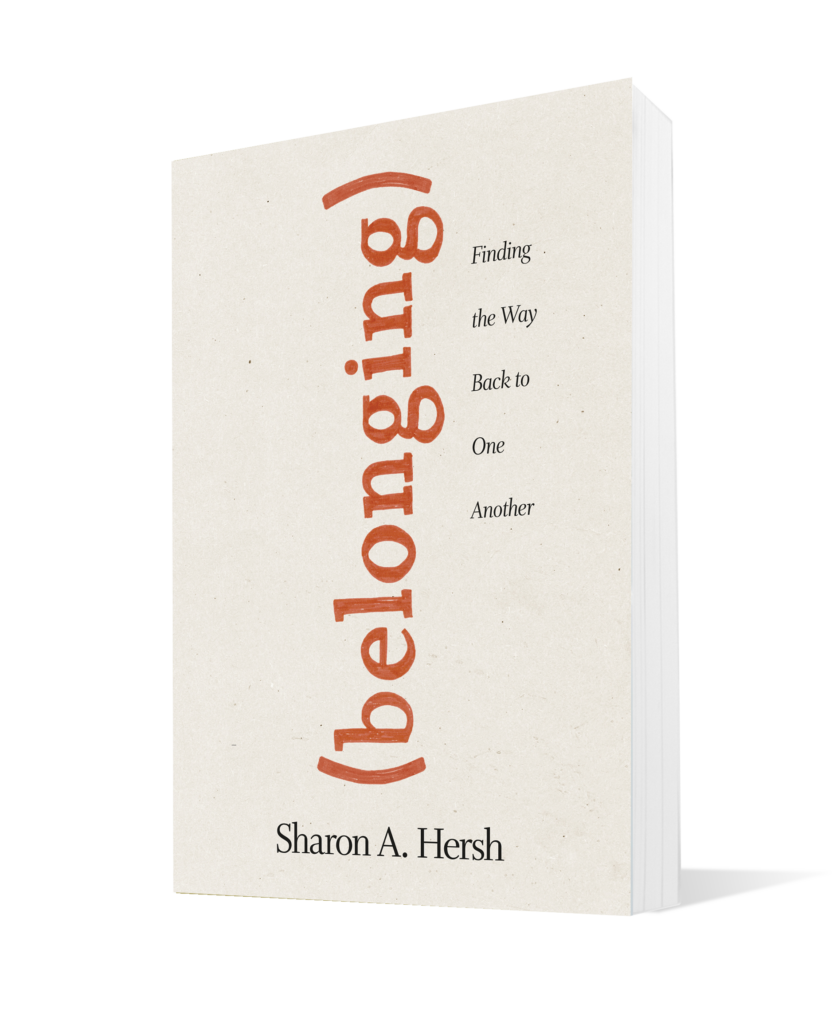I have the best manicurist in the city. Her name is Annie, and I send all my friends to her for their manicures and pedicures. I told my friend Sharla about her, and she became a regular customer. I also told Sharla that I watch with sadness sometimes when I’m waiting for Annie in the nail salon. I’ve watched her carry a plate with a pyramid of shiny red apples and kneel down to place them carefully on the floor before a fat, ceramic Buddha painted with red garments (a shade darker than my favorite nail color). I feel sad as I see Annie kneel before a god who looks at her with eyes that cannot see over the bounty of apples it cannot taste.
Not too long ago, I came into the salon, and Annie greeted me with a big smile. “Look!” She pointed to a beautiful bouquet of flowers and laughed. “Sharla brought them to me. Just because!” I called Sharla later to tell her about Annie’s joy over the flowers. Sharla explained she brought them to Annie “because I want her to know she’s more than a manicurist to me. I want her to know I care about her. I want to tell her about Jesus.”
Red Nails, Buddha, and Jesus
Sharla’s generosity challenged me. Mark Labberton expands on why:
This is the shock of Jesus’ call to his disciples. [Jesus] was always seeing people differently from how his disciples did. He stopped to see those who could have been ignored. He remembered, in age, lifestyle, circumstances, spiritual condition, those on whom many around him closed the shutters. Jesus relentlessly opens the shutters…. This act of [transformation] is . . . evidence that our shuttered windows are now open and opening wider still.[i]
Sharla was inviting me to open the shutters and add Annie to my story—not as a faceless walk-on but as a significant character in the story. Sharla and I have begun to pray for chances to tell Annie about the love story of Jesus. We are scheduling more frequent manicures.
Along the way God is challenging me about my own attempts to bargain with him, reminding me I’m not all that different from Annie. I catch myself wondering, If I read my Bible every day, will God rescue my children? If I don’t drink, smoke, or swear too much, will he bless my counseling practice? If I eat my vegetables (at least once a day), will he preserve my health and lower my cholesterol? I don’t offer fruit to a lifeless statute, but I offer control, trying harder, and being better to the one who was crucified and rose from the dead so that I would never worship something that’s not even worth it.
When you see a nail salon, will you pray for Annie and Sharla and me? We are trusting in the God who sees us, and no matter what we offer, we know he only sees Love.
Transforming grace keeps the shutters open, eagerly welcoming new cast members, asking God for the courage to see and be seen and the vision to perceive the needs of people as he does. And sometimes it brings flowers just because.
Communion with a Lesbian
Janie goes to my church. She used to sit on the back row and would always leave before Communion because she wasn’t sure she should join us. She is asking questions about her sexuality and acknowledges she is attracted to women. She also reads her Bible, asks good questions, and loves Jesus. She longs to talk about all of this in community but doesn’t know how. She confessed these feelings to me one Sunday night after church, and I could feel the warning light going off again. I didn’t know what to say. I knew there was something about Janie’s confession that seemed right, but I feared if I got involved, it could go terribly wrong.
I am studying to teach a class on sexuality and just read Sexual Ethics: An Evangelical Perspective by Stanley Grenz, who suggests sexuality is broader than sex. He writes, “This drive to bond with others in community is an expression of our fundamental sexuality, a sexuality that goes deeper than body parts, potential roles in reproduction, and genital acts.”[ii] Reducing Janie to her same-sex attraction dismissed her holy longing for community and made me an active participant in distorting her sexuality.
I winced as I thought about Janie’s “drive to bond with others in community” being unmet on the empty back row of the church. One Sunday night, as Communion was about to begin, I thought about what Jesus would do with Janie. I could not imagine him letting her slip out of the church alone, so I went to the front of the church and took two pieces of bread and two little Communion cups of wine and went to find Janie. She had already exited the church. I followed after her, half-running while trying not to spill the wine on the sidewalk. “Janie!” I called out. She stopped and stared at me. I know I looked a little crazed, out of breath, trying to balance the bread and the wine.
“Janie, I just want you to share this with me. It represents Christ’s body, broken for you.” I handed her a piece of the bread. After we both finished chewing the bread, Janie surprised me and took both cups of the wine from me. She pushed one cup toward me while her eyes filled with tears: “And this is Christ’s blood shed for you.” We both drank our Communion cup and then looked at each other. After a few minutes, Janie smiled and said, “Thank you. I’ll see you next week.” She does come every week, and she doesn’t slip out before Communion any more.
I am certain there are some who will have theological arguments with my actions, but I am grateful for Janie. She compelled me to confront my cowardice. I recently read that Henri Nouwen, who was called to celibacy, believed people with same-sex attraction serve a unique purpose in the Christian community. He endorsed Carl Jung’s view that “[gay] people are often endowed with an abundance of religious feelings, and a spiritual receptivity that makes them responsive to revelation.”[iii] Janie’s courage to confess an unpopular struggle and stay in community is a revelation to us all. She demonstrates the poignant truth described by theologian Ronald Rolheiser: “Our hearts, minds, and souls are Grand Canyons without a bottom. Because of that we will, this side of eternity, always be lonely, restless, incomplete . . . living in the torment of the insufficiency of everything attainable.”[iv]
Relationally, we are ultimately unfillable. Rather than be afraid of Janie’s controversial struggle, I am convicted to look at my own ways of trying to control my holy hunger—even if it’s from morsels of people-pleasing. I am so glad Janie is in my life, a part of my communion of desire.
Transforming grace relentlessly reveals to me that Jesus is the love I have been looking for all of my life—and that he never stops looking for me, even when I want to sneak out the door before anyone sees me. And that compels me to look for other sneaky characters to add to my story.
[i] Labberton, Dangerous Acts, 170.
[ii] Stanley J. Grenz, Sexual Ethics: An Evangelical Perspective (Louisville, KY: Westminster John Knox Press, 1993), 197.
[iii] Michael Ford, Wounded Prophet: A Portrait of Henri J. M. Nouwen (New York: Image Books, 2002), 142.
[iv] Ronald Rolheiser, “The Vale of Tears,” ronrolheiser.com, July 10, 1992, https://ronrolheiser.com/the-vale-of-tears/#.XdRe0FdKhjU.




Wow! THIS is the reason why so many “Christians” are confused today! All of this earthly wisdom is not from God, but other gods of this world. What would Jesus do with your lesbian friend? Well he wouldn’t offer her communion that’s for sure? He would do the same thing he did with the woman caught in the very act of adultery, he didn’t berate her, he didn’t condemn her, he extended his love and forgiveness to her. I believe his exact words were “ neither do I condemn you GO AND SIN NO MORE” So, I’ll stick with the WORD OF GOD and not our (own) personal views about what Jesus would do because it clearly tells us what he did, and as for communion the word says “many sleep for not discerning the Lords body”
1 Corinthians 11:29, you don’t eat and drink in an unworthy manner it brings judgement, so someone is practicing sin, a sin the Bible CLEARLY calls out, and you go and offer her communion?
This is exactly why the word says judgement begins at the house of God 1 Peter 4:17
When the church is judged we are disciplined trials that come, come to refine us so we can come out pure as gold, and miss the final judgement of the world that await all who deny the cross thats (IF) you even believe hell exist. Lord help us all to know you, and be more like you, and not of our own
Jesus come quickly is my prayer